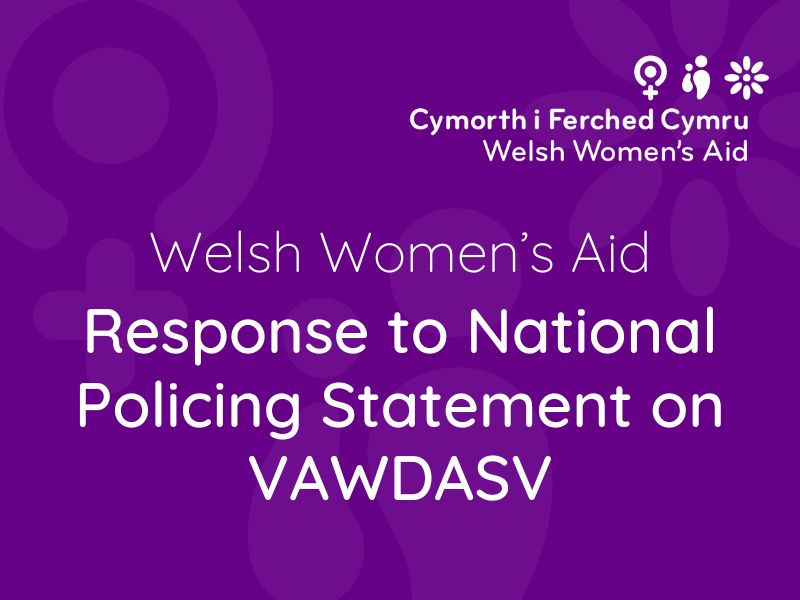
There is an urgent and critical need to address the rising threat of Violence Against Women and Girls, domestic abuse and sexual violence (VAWDASV), as outlined in the National Policing Statement 2024 released by the National Police Chief’s Council (NPCC) today.
We are deeply concerned by reported violence against women and girls, which has risen by 37% over recent years. Data shows that almost 3000 VAWDASV-related crimes are recorded daily. At least 1 in every 12 women will be a survivor of violence against women and girls per year. The actual number is likely to be higher than this, as we know that not all survivors report their experiences. There is a need for immediate and coordinated action across all sectors.
Last year, there were over 1 million VAWDASV-related crimes, making up nearly 20% of all crimes in England and Wales. Often survivors can experience multiple forms of violence and crime, which makes it harder for the police to respond effectively. Services need to be resourced properly, in order to respond to the rising complexity of VAWDASV.
Despite the rise in VAWDASV-crimes, less than 24% of domestic abuse cases are reported to the police. This underreporting indicates a significant gap in the criminal justice response to violence against women and girls, as many survivors may feel unable to come forward due to fear, stigma, or lack of trust in the system. The data also reveals a concerning trend regarding the victimisation of children, with a reported 435% increase in child sexual abuse and exploitation. This alarming statistic underscores the urgent need for targeted interventions and protective measures for vulnerable populations, particularly children.
Considering this, we call for the following key actions to be prioritised:
Improvement of Criminal Justice Response: We urge the government to address systemic issues within the criminal justice system, including court backlogs and prison capacity pressures. A robust and efficient trauma-informed justice system is essential to ensure that policing responses have real consequences for offenders and that survivors feel supported and protected. All organisations within the criminal justice system need to work on building a positive relationship with survivors in order to improve trust in its outcomes.
Training and Professional Development: Investment in training and professional development for police officers is crucial. Officers must be equipped with the necessary skills and empathy to respond effectively to victims of VAWDASV. It is important that the police operate in a trauma informed, strengths-based and needs-led approach so that survivors can be supported in a meaningful and sustainable way.
Public Awareness and Education: Increasing public awareness and education of VAWDASV is vital to encourage reporting and support for victims. We must challenge societal norms and attitudes that perpetuate violence against women and girls, fostering a culture of respect and safety for all.
Data Collection and Analysis: We advocate for improved data collection and analysis related to VAWDASV. Understanding the scale and nature of the threat, whilst acknowledging that not all survivors report, will inform policy and operational decisions, ensuring that responses are evidence-based and effective.
Support for Survivors: Enhancing support services for survivors of VAWDASV is a priority. We call for the creation of accessible pathways which are trauma informed for survivors to disclose their experiences and receive the necessary support from law enforcement and other organisations.
Whole-System Approach: Finally, we emphasise the need for a coherent and robust whole-system approach that involves collaboration between statutory agencies, charities, and the private sector. This collaborative effort is essential to prevent VAWDASV from occurring in the first place and to create a safer environment for all women and girls.
Welsh Women’s Aid is committed to working alongside partners to implement these calls to action.
Anyone experiencing violence against women, domestic abuse or sexual violence, or abuse, or those concerned about somebody at risk – support is available to you now. Live Fear Free is a confidential and independent helpline that can provide advice and support 24 hours a day, 7 days a week. Call 0808 80 10 800 / text 07860077333 / email [email protected].”
ENDS.
For more information, please contact Stephanie Grimshaw, Head of Public Affairs and Communications on [email protected]

